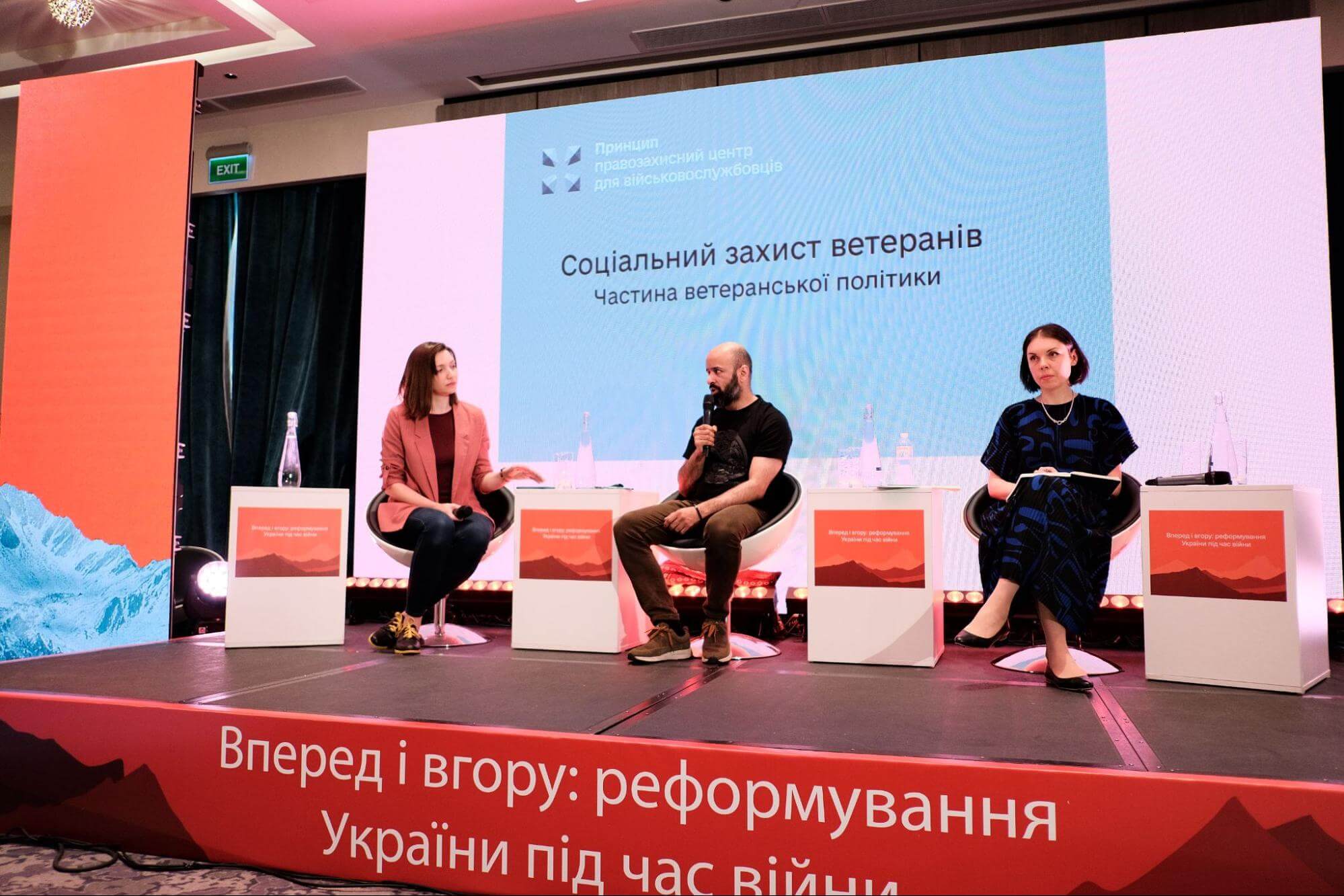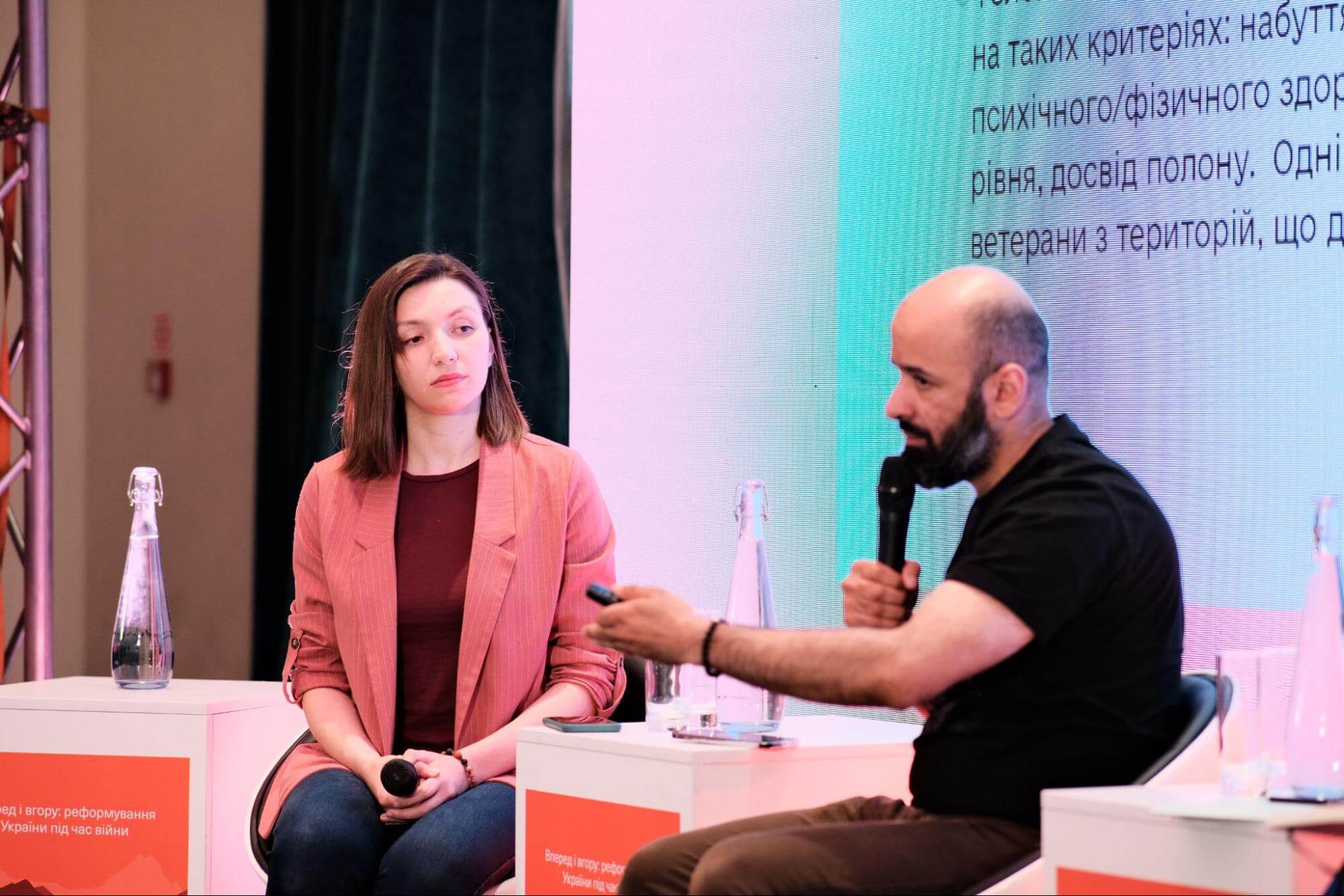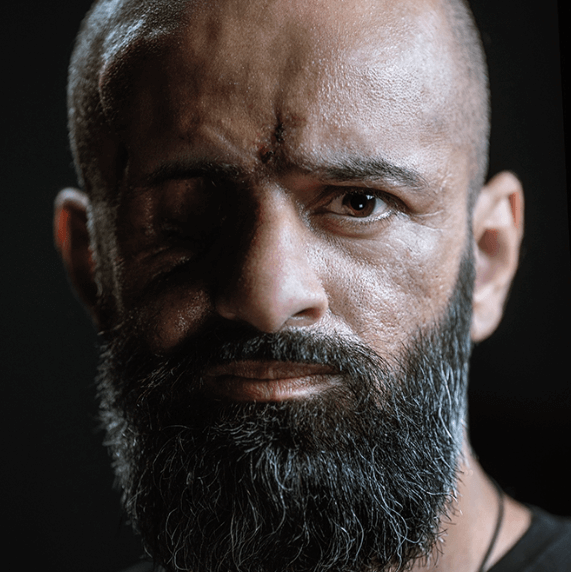The social policy for veterans is like a deity. It’s out there somewhere, but no one has seen it. After my demobilization in 2016, no government body reached out to ask me, ‘How are you? Maybe you feel like hanging yourself? Are there any problems you’re facing?’ Then, when I got injured and left the hospital in August 2022, guess what? Prepare to be ‘surprised’: nothing has changed.
It remains unchanged in that there are still no meaningful policies in place that would prompt at least someone to ask me as a veteran or as an injured individual after six months: ‘Have you developed a drinking problem?’ It’s a well-known fact that many service members turn to alcohol as the only easy coping mechanism to help stabilize their psyche when faced with challenging situations. Yet, I’m not the most extreme case. There are other individuals, lesser-known and with limited access to publicity, who endure even more dire circumstances.”
The only noticeable change now is the emergence of a desire to reform the social policy for veterans. It appears that there is finally a so-called political will. While previously it was impotence, at least now we have a desire: we will find a ‘Viagra,’ and we will help one another.
According to the Ministry for Veterans Affairs, if the war were to end soon, there would be around 3 million veterans and family members of fallen soldiers in Ukraine. We are all too familiar with how the state apparatus operates: when a public outcry occurs, the Ministry is prompted to answer the question, ‘What have you done?’ Subsequently, the Ministry sets out to draft a bill. This has been the established pattern in Ukraine, and the same was true for the Military Medical Commission (MMC).”
I do like one story I heard from Ivona Kostyna of the Veteran Hub (great guys doing a great job!). Imagine a scenario where a service member was demobilized and later joined the operational reserve. After eight years, the state once again summons him to return to the battlefield. If I were to be demobilized now, and let’s say we achieve victory in the war, but in two years, the state calls me back, will I be able to establish a fulfilling social life? No. Will I be able to build a successful business? No. Why? Because I’m aware that my entire existence belongs to the state.”
The question is: What is the state’s policy regarding reservists? With an estimated 1.5 million reservists, if we don’t consider this strategic policy promptly, we’ll end up offering some “goodies” to these people, similar to providing me with a free ride while I have a personal driver. They might just as well purchase cinema tickets for a blind person.
Why is this necessary? We understand all too well that some individuals embezzle money from this. That’s why a miracle must occur here, where different Ministries sit together to discuss the overall state policy regarding reservists. If we had concrete plans for five or ten years, we would know what kind of support we could provide to reservists. For example, if you don’t want to send me back to war, you could oblige me to contribute by teaching the young once every six months. This way, I would feel that the state has left me be. I could focus on teaching every six months and, in return, receive a loan to develop my own business. But if I get a loan for my business and am told about being called back to war, I wouldn’t be able to fully commit, and the state’s investment would be wasted.”
Hence, it is of utmost importance to establish a comprehensive approach, a cohesive state policy that allows the Ministries to meet with each other.” By the way, this was the case with the MMC I mentioned earlier. Last year, only 2,000 individuals were sent abroad. Ever wondered why? Primarily because the command of the Medical Forces fails to transmit information to the Ministry of Health.
It’s also necessary to transition to a system that takes into account people’s individual needs. The focus should be on addressing their needs within the context of social life. How should one evaluate me as a warrior? If my worth is measured solely by the number of Russians I’ve eliminated, it would undoubtedly dishearten the person who is currently supplying potatoes to my position. However, without him, I wouldn’t have been able to kill those Russians. The rear support is of utmost significance, as a strong front is built upon a reliable rear. Behind all the heroic videos the guys capture are those in the rear who work, provide, and deliver supplies. I have a friend in the office who spends his entire day registering and handling munitions, among other tasks. He is exhausted, although his efforts may not be apparent to you and me. Should he not be deserving of social support? It’s crucial to address the specific vulnerabilities that different categories of veterans may face.
Here’s another story. Let’s imagine a soldier whose family is in the occupied territory or has died; his property and social connections remain there. And it’s a wounded soldier. He probably requires different social guarantees and assistance than me, who resides in Kyiv with established social connections and a network of friends. If something happens, I can even call my teacher and request a place to stay for the night, knowing she would readily accommodate me. However, a guy from the occupied territory does not have such an opportunity.
The most troubling issue at present is when a wounded, physically limited, or unfit soldier is taken on the staff solely based on their military background, without the option to seek employment elsewhere, and he is paid 800 to 1000 hryvnias, despite having sacrificed part of their health.
It’s crucial to establish the future of social policy on a foundation of reliable statistics and data. You know that a register of veterans exists, but it’s also like a deity that is spoken about but remains unseen. I believe the Ministry of Social Policy needs it badly since it contains a lot of information about veterans’ identities, locations, and regional origins.
Certainly, having a register of social service providers is equally important. We could do everything right with the data available (regarding education, experience, and other relevant information). For instance, we could say to medical professionals: come and register, and you won’t be sent to the frontline but to the MMC to reform the existing system. With a register in place, we would avoid situations like that of Roman Ratushnyi. We would know that the state invested a lot in him and his education and how well-trained he was and about the tremendous potential his knowledge, skills, and experience held for the benefit of the state. But… he heroically died while serving as an artilleryman.
There’s much we can do to implement new data-driven policies. And it’s very easy to do now. Many public organizations would be ready to help, and our partners are willing to provide financial support. We just need to take the input data and use it correctly.
The author’s column was prepared based on the materials of the international conference “Forward and Upward: Reforming Ukraine during the War,” held on May 19 in Kyiv. The event was organized by the think tank Vox Ukraine with the support of The National Endowment for Democracy (NED), with the main media partner being Media Center Ukraine.
Attention
Автори не є співробітниками, не консультують, не володіють акціями та не отримують фінансування від жодної компанії чи організації, яка б мала користь від цієї статті, а також жодним чином з ними не пов’язаний





